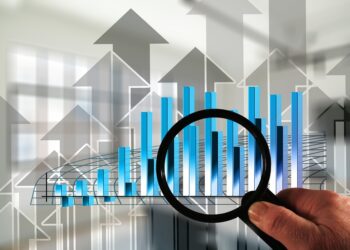Hey there! If you’re a recent university graduate between the ages of 22-25, congratulations on scoring your first salary! 🎉 It’s an exciting time, but let’s be real—it can also feel a bit overwhelming trying to get your financial life in order.
You might be wondering, “How do I figure out my net worth?” That’s a great question! But, hold tight, because many folks overlook certain assets that could change the way you view your net worth. In this article, we’ll dive into what assets are not included in net worth calculations, allowing you to get a clearer picture of your financial standing and make more informed decisions. By the end, you’ll feel more confident managing your money and building good habits right from the start!
What is Net Worth?
Before we jump into the assets to exclude, let’s quickly clarify what net worth actually is. Think of net worth as the score in a game of finances. You add up everything you own (assets) and subtract everything you owe (liabilities). The result is your net worth. Simple, right? But just like in a game, not everything counts towards your score.
Common Assets Excluded from Your Net Worth Calculation
1. Personal Items
Things like your clothes, electronics, and furniture might have value to you, but they don’t generally contribute to your net worth.
- Why? Their resale value is often much lower than what you paid. They are more for enjoyment than investment.
2. Luxury Goods
That designer handbag or fancy watch? Not included!
- Why? Luxury items tend to depreciate quickly and are not assets that generate income.
3. Primary Residence (often)
While your home is often a significant asset, many young adults don’t factor in the liabilities associated with owning it, like a mortgage.
- Why? If your mortgage debt outweighs your home’s value, it can negatively impact your net worth.
4. Retirement Accounts
Accounts like 401(k)s or IRAs may feel like assets, but they often come with penalties for early withdrawal.
- Why? Until you’re older, these funds are not readily accessible cash but are meant for a long-term future.
5. Cash Value Life Insurance
If your policy has cash value, it might seem like a great asset; however, there are costs involved!
- Why? The value you can borrow against is usually lower than you might think after considering fees.
6. Unused Gift Cards
They could be considered assets, but are they really usable cash?
- Why? Unless you plan to spend them, their value sits stagnant and can expire or lose value over time.
7. Collectibles
From rare comic books to antique furniture, collectibles can be fun, but they’re risky as assets!
- Why? Their value is subjective and often hard to liquidate quickly.
8. Side Hustles or Businesses (if not profitable)
If you’re running a side hustle but it’s not generating consistent income yet, it may not add much to your net worth.
- Why? Without profit, these efforts might just be costs rather than assets.
9. Education and Degrees
While investing in yourself is invaluable, degrees can’t be counted as liquid assets.
- Why? Although they can boost your earning potential, they don’t have a direct monetary value.
10. Personal Loans Made to Friends or Family
Giving money to someone close can feel like an investment, but it’s risky!
- Why? If they can’t pay you back, this type of loan doesn’t add to your financial stability.
Conclusion & Call to Action
Now that you know what assets are not included in net worth, you can better understand your financial situation. Remember, your net worth score is just a tool to help guide your money journey—it’s not a judgment on your financial success.
Takeaway:
- Focus on what has real value and helps you grow financially!
- Consider updating your financial picture by excluding these items for a more precise net worth.
Feeling inspired? Here’s a small, actionable step: Take a few minutes to write down your assets and liabilities. Once you see your financial layout, you’ll have a better starting point for future planning!
You’ve got this! Keep pushing forward, and remember that every small step counts on your journey to financial wellness.












